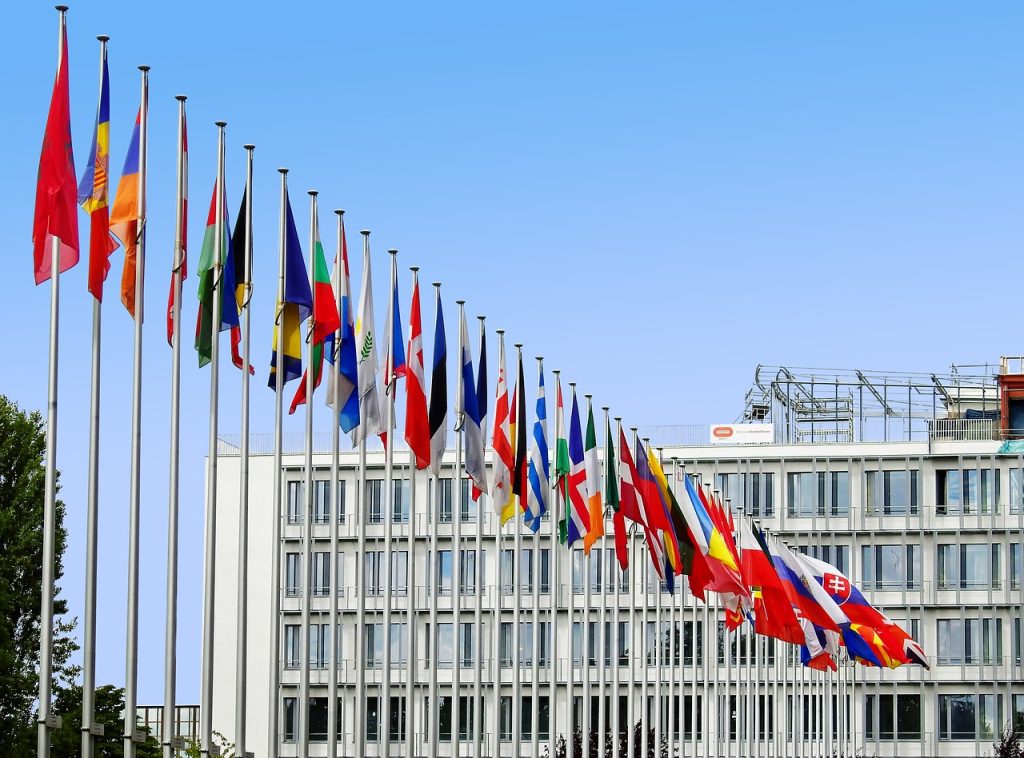
It remains to be seen whether the so-called deal on tariffs announced on Sunday between the United States and European Union, imposing a general 15 per cent tariff on nearly all EU member states’ exports to the US, is a serious economic setback for the bloc in general or the Republic in particular.
The official – and predictably obsequious – line from Merrion Street and Iveagh House appears to be one of support for European Commission president Ursula von der Leyen on a “least worst” basis.
As I wrote here some time ago, the EU was negotiating from a position of weakness, if only because the multiplicity of member states made devising a collective response and bargaining with threats of trade reprisals into an exercise in herding cats.
In simple economic terms, the effect of tariffs is to oblige US customers to pay more for imported EU goods by imposing a federal tax on those imports. On basic economic principles, the 15 per cent tariff will raise the price of imports and reduce US demand for those imports to an extent determined by elasticity of demand and supply. Whether EU exporters will be able to find other markets for such goods in the face of reduced US demand is unclear.
The EU’s weakness in negotiations also sprang from the non-economic leverage from Washington on issues such as the Ukraine war and the financing of Nato.
The French premier described the deal as a black day for the European Union. Was this a political statement to avoid collective blame? Or did France ever support a more aggressive bargaining strategy which did not materialise? German chancellor Friedrich Merz also criticised the deal but wondered if it was as much as could be achieved.
Was this lukewarm Franco-German reception a cynical exercise in domestic political posturing? It’s hard not to be cynical about the member states’ responses.
We still await a convincing Merrion Street analysis as to how the differential between the United Kingdom tariff rate of 10 per cent and the EU rate of 15 per cent will play out for both parts of Ireland and for the all-Ireland economy. Nor have we any indication of the Republic’s response to the deal in respect of liquefied natural gas imports from the US. Who is going to build a terminal to deliver our part of that deal?
Trump’s “helpful advice” offered in Scotland to European politicians to face up to the migration issue has received little response from British or European Union leaders.
He appears to be moving in the direction of a more benign attitude towards his liberal democratic allies on this side of the Atlantic. Likewise, he seems to be creating more distance between the US and president Vladimir Putin’s Russia.
Trump, alas, is right on migration. The European Union member states need to get real. According competence to the EU in relation to external migration and asylum seeking has turned out to be a disastrous error. The European Union is – and has been – utterly incompetent to deal with the inevitable conflation between external migration and asylum seeking. Schengen is in suspense, and the much vaunted migration pact simply will not work.
The disastrous inclusion of asylum rights in the EU’s Charter of Fundamental Rights and Freedoms has the grotesque consequence that an unaccountable group of judges in the European Union’s court of justice – a treaty tribunal – are now the ultimate arbiters of member states’ capacity or incapacity to deal with what is an international racket in economic migration dressed up as asylum seeking.
Is the term “racket” too extreme? I don’t think so. Only the very naive or the wilfully ideologically blind believe that there is some absolute international right for would-be migrants in Vietnam, Somalia, the Maghreb, sub-Saharan Africa or elsewhere to demand entry to and permanent residence in the individual EU member states based on asserted asylum need.
The term “racket” aptly describes the huge international people-smuggling industry that makes mass migration to claim asylum possible. Closer to home, this State is paying vast sums – more than €1.2 billion annually – to accommodate asylum-seeking migrants in highly profitable centres. The eye-watering amounts paid by the Republic to lessors and providers defy belief or justification
The Minister for Justice now warns us that the European Court of Justice (ECJ) is likely to order the State to compensate homeless asylum seekers in the very near future – in the middle of a crisis where we cannot provide enough homes for our own citizens.
There is also a veritable domestic Irish legal industry involved in securing EU-guaranteed Irish residence for asylum seekers and their family dependants.
Dismissing this all as far-right politics or as Trump blather is dangerous. The State needs to stop bringing in apples daily for the teacher in the EU Commission schoolroom. We need, instead, to activate fellow member states to adopt a treaty-status measure returning migration and asylum competence to the individual member states and ending the roles of the commission and ECJ in such matters.
